These young Singaporeans are eyeing a career as K-pop idols. What are their odds?
Blackpink’s Lisa, a native Thai, is one of the world’s biggest Korean pop stars. Could Singapore see one of its own soon? The programme Talking Point gets a glimpse into the lives of some young hopefuls.
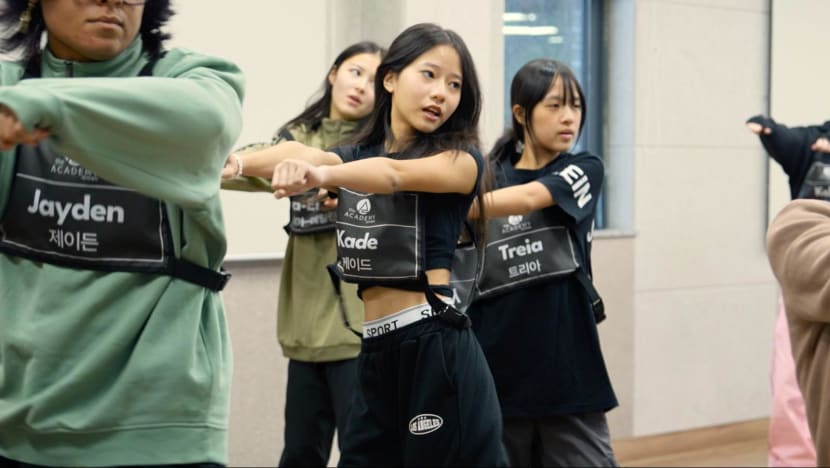
Singaporeans Kade Wong and Treia Tan, both 14, getting dance training at a 10-day K-pop boot camp in South Korea.

This audio is generated by an AI tool.
SINGAPORE: Kade Wong has gone for five global K-pop auditions, attended four private auditions with casting managers and, most recently, was asked to audition directly with a K-pop agency director. She is only 14.
Kade and two others, Nicholas Tan, 13, and Emiko Boo, 12, are among a rising number of Singaporean hopefuls looking to K-pop as a viable career option.
With more entertainment agencies looking beyond South Korea for idol trainees in recent years, their aspirations might not be too far-fetched.
In November, the trio participated in an audition held locally by one of South Korea’s top four talent agencies that was holding an audition in Singapore for the second time. Its global auditions, meanwhile, are held online monthly.
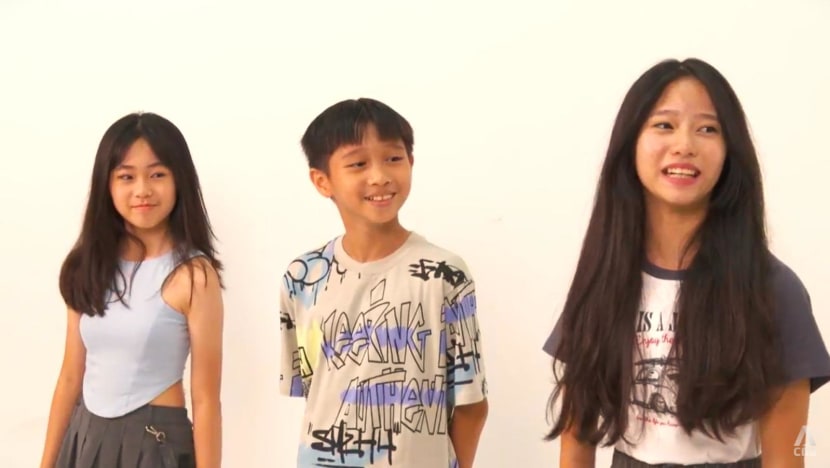
Next month, another agency, Attrakt, will be looking to Singapore for potential members to join Fifty Fifty, the group behind the 2023 viral hit, Cupid. Even a high school programme dedicated to teaching K-pop is set to begin here.
Do Singaporeans stand a chance of emerging on the K-pop scene? What would it take for a breakthrough? CNA programme Talking Point finds out in a two-part episode on the grip K-pop has on the country.
WHY SINGAPORE?
Following the global expansion of the K-pop market, with acts such as BTS, talent companies are keen on finding foreign members, said talent scout Darren Won.
“One of the best ways to garner local support is by having members from that particular country in the group,” said Won, head of artist development at Gori Agency, who has discovered K-pop idols like Minji from the girl group NewJeans.
“If we specifically talk about the edge that Singaporeans have, many Singaporeans are proficient in both Chinese and English. Therefore, I believe it could be advantageous in terms of language.
“It’s easy for the fan base to expand to neighbouring countries.”
WATCH: Part 1 — $10,000 a year on K-pop: How far will fans go to support their idols? (22:38)
When pressed on how high a chance Singaporeans stood, he replied: “What a company is looking for significantly influences (the candidate’s) fate. … From the candidate’s perspective, it’s something they can’t know.
“Making efforts like re-applying a month or two later, even if they didn’t make it at the audition a while back, could be a method to bring a bit more luck to themselves.”
In the case of Kade, Nicholas and Emiko, they did not pass the recent audition in Singapore.
Indeed, becoming the next Lisa of Blackpink, a native Thai who was chosen from among 4,000 aspirants at her audition, requires not only luck but a tremendous amount of effort — for example by participating in boot camps.

These camps, organised by local academies and foreign-based companies, have become popular in South Korea and promise participants a taste of idol life. The young hopefuls undergo rigorous training, ranging from dance and vocal classes to modelling and photoshoot courses.
Some camps provide a shot at getting cast as trainees with entertainment companies. For example, participants could put on a showcase to the agencies’ talent managers, to try to score a private audition.
WHAT ARE BOOT CAMPS LIKE?
Even getting in some boot camps requires auditioning. This is so that the organisers can promise a certain quality of talent to attract casting managers from top-tier agencies to the showcase.
Kade was one of 73 young hopefuls from Singapore, Australia, Brazil and France, among other countries, to be selected to join a 10-day boot camp in South Korea last month.
WATCH: Part 2 — I want to be a K-pop idol: Can intensive boot camps in South Korea help? (23:28)
It was run by The Academy Australia and cost close to S$2,500, which covered lodging and course fees.
Talking Point got a glimpse of life inside: Participants started their day at 7 a.m. and could be training until 10 p.m., all so that they can master the dance and vocal performances for their showcase.
“Usually at home, (for) our dance class, we take about 10 lessons to finish one song. But now it’s just a few days to finish a song,” said Kade, one of 13 Singaporeans at the boot camp, during a break.
As presenter Munah Bagharib observed, people started sitting out practices by day four, and some were crying. “Doing 14, 15-hour days for nine days straight is really no child’s play,” she said.
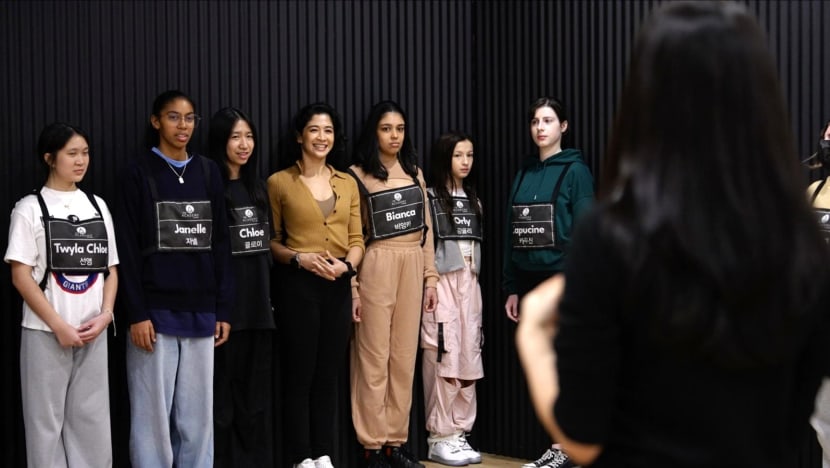
Before being presented to the talent managers, the participants were assessed by director Angela Lee to gauge their progress.
“If the trainees are really serious about trying to become an agency trainee, … the showcase is a really important day for them,” said Lee, who is Singaporean.
Typically, around “five to six per cent” of participants end up making it to private auditions with casting managers right after their showcase, she added. This time round, about 10 per cent made it.
Kade was one of them, clinching an audition with Won from Gori Agency, plus three other agencies. He described her as a “cute” and “bright” character who caught his notice during the group showcase.
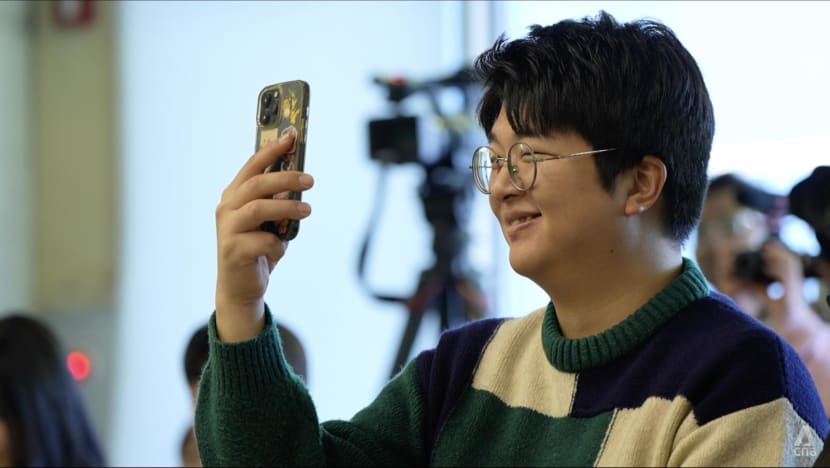
“Her singing was better than I expected, and I see the potential for further growth,” he told Talking Point after the private audition.
But there are a few hurdles to cross before the company commits to hiring a foreign talent — from visa issues to whether the person fits the company’s needs.
“We’ll ask ourselves questions like, ‘She does seem bright and cute right now, but will she look prettier in future too? Can her skills improve even more?’” said Won.
“Since she’s still young, we may need to think about how much potential she has and project what image would be suitable for her in future.”
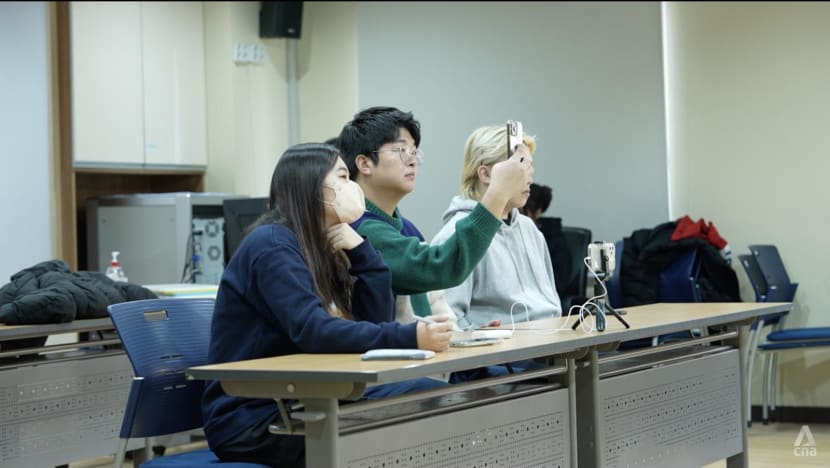
On whether boot camps lead to a better chance of being signed, he said: “The likelihood (isn’t) noticeably higher or lower than other auditions or opportunities. It’s not like university admissions, where there’s a fixed quota.
“Each entertainment company has different needs, and we have to cast according to each company’s taste. There are many variables.
“Both skill and luck are important.”
‘WE HAVE TO PROTECT HER’
Even if Kade stands a chance after her private auditions, it is almost certain that she would have to put her dreams aside — or at least until she turns 21, said her father, Anthony Wong.
“We read a lot of news about K-pop stars committing suicide. … Social media is a very tough environment; you get a lot of nasty comments,” he said. “Right now … we have to protect her.”
“We just want her to focus on her studies.”
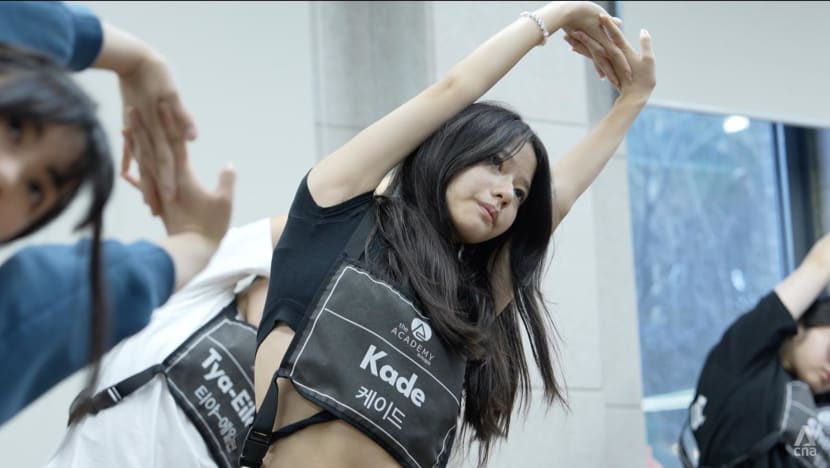
While he had been reluctant to send her for the camp, he and his wife felt it was only fair to give her a chance to experience it, provided that she did well in her Secondary Two examinations. And she did.
Kade, however, feels that even at her age, time is running out. At the recent audition in Singapore, anyone over 19 years old was considered too old to audition.
“I’m growing older, and I think starting young and making sure you get in young is very important,” she said.
If she ever makes trainee with an agency, she would “definitely want to go for it”, she said. “I’ll try my best to convince (my parents) to (let me) continue my studies in Korea while training.”
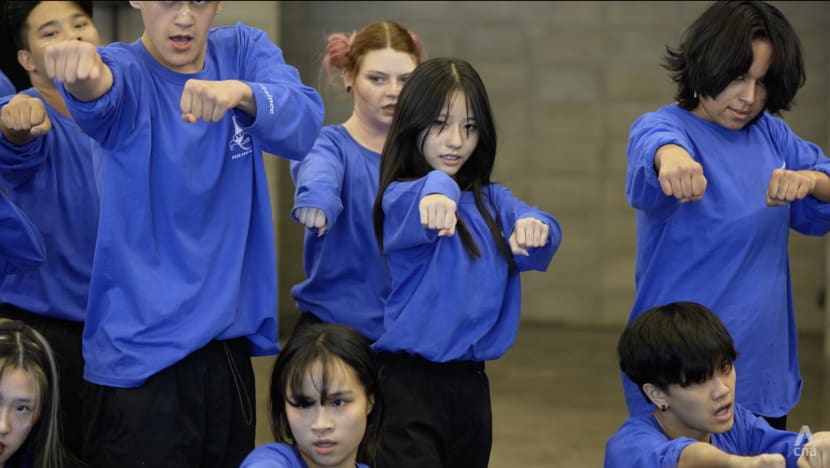
Beyond becoming a trainee, one would need to appear on popular television shows like Music Bank, which features performances by artistes weekly, or on variety shows, said Singaporean K-pop investor David Yong.
“It’s really about … spending years of training to make the grade,” said Yong, 36, who himself debuted as an artiste in 2022 to make further inroads in this industry.
The important part is to educate the parents … to be able to accept their kids going over to Korea to train, to pursue a different career rather than a traditional career.”
EXACTING BEAUTY STANDARDS
A punishing schedule aside, idol hopefuls are well aware of the beauty standards demanded by the industry. “If the company wants you to (have a) good figure, then you should work hard to train towards (that),” said Kade.
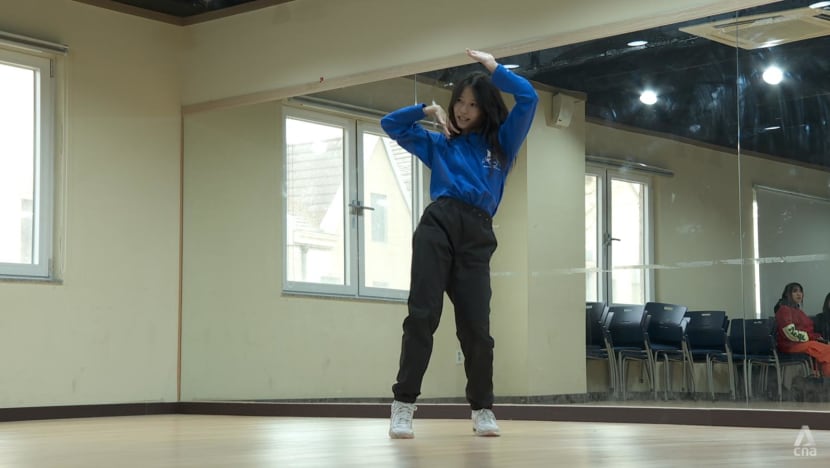
When auditions loom, she does at least two or three workouts a week on top of her four to five weekly dance practices.
“Usually, people like idols who are in shape, who have abs,” she said. “It just makes yourself look more appealing to the audience.”
Casting agents do not shy away from applying this criterion either. On why he cast Minji, for example, Won said: “I knew right away that she was going to be 100 per cent prettier as she grows up.”
For this reason, Sheryl Chia, 13, has chosen to focus her K-pop aspirations on being a dancer and choreographer. “Maybe because (of) how I look,” she said. “Being a choreographer doesn’t require you to have such a good body size.”
Still, she went on a diet a year ago and lost 15 kilogrammes.
Male idols cannot fall short of standards either. “Most of them are expected to have a height of 180 centimetres and above,” Nicholas cited.
He said the industry also wants people with “intricate facial details” and special looks, like “cat eyes” or a “high nose bridge”.
With K-pop’s allure, however, these young Singaporeans want to be a part of it all. Emiko, who has “always loved” being on stage, said: “I enjoy bringing joy to the audience.”
Nicholas, who loves the idols’ colourful outfits and “their soul”, said: “They make such a great impact on people’s lives.”
As for Kade, she is inspired by the idols’ hard work, and said: “Hyein from NewJeans … is so young, and yet she can have such good stage presence and deliver such good performances.
“I want to be an idol who inspires people as well.”
Watch Part 1 of this Talking Point episode here and Part 2 here. The programme airs on Channel 5 every Thursday at 9.30pm.



















